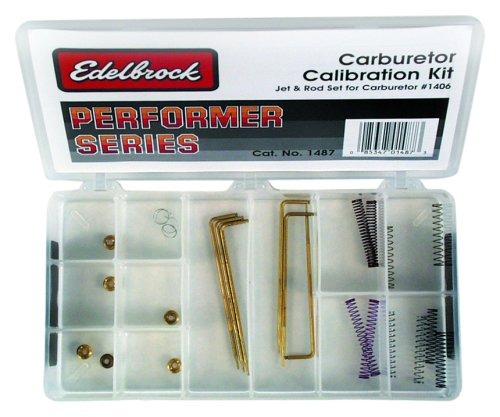
(Image/mlstatic.com)
You’ve got questions, we’ve got answers. We work with the Summit Racing tech department to help you tackle your auto-related conundrums. In this week’s Mailbag, we’re troubleshooting detonation problems that appeared after a new carburetor was installed on a stock Chevy 350.
Q: I just bought a 1979 GMC Jimmy with a bone-stock Chevy 350. The first thing I did to modify it was install an Edelbrock Performer intake manifold and an Edelbrock Performer Series carburetor. I followed the instructions for both parts, but I’m having some problems with the carb. At idle and part-throttle, it runs fun. But at wide-open throttle, it pings and knocks, and doesn’t seem to have the power it should. Everything was fine before I installed the carb and intake. What should I do?
A: We believe the detonation at wide-open throttle is caused by a lean condition in the carb’s secondary circuit. Edelbrock makes a calibration kit that has an assortment of jets, metering springs, and step-up springs that will allow you to tune your carb for more performance.

should be right about the lean condition, should have had him double check timing first ( dist was removed}
I second the first comment. Chevy intake R&R requires that you remove the dizzy and re-set the timing after the install. I would check both base timing and full advance with vacuum and mechanical operating – should be no more than about 40 degrees at part throttle while revving it – and probably no more than 25 at wide open throttle with no vacuum advance.